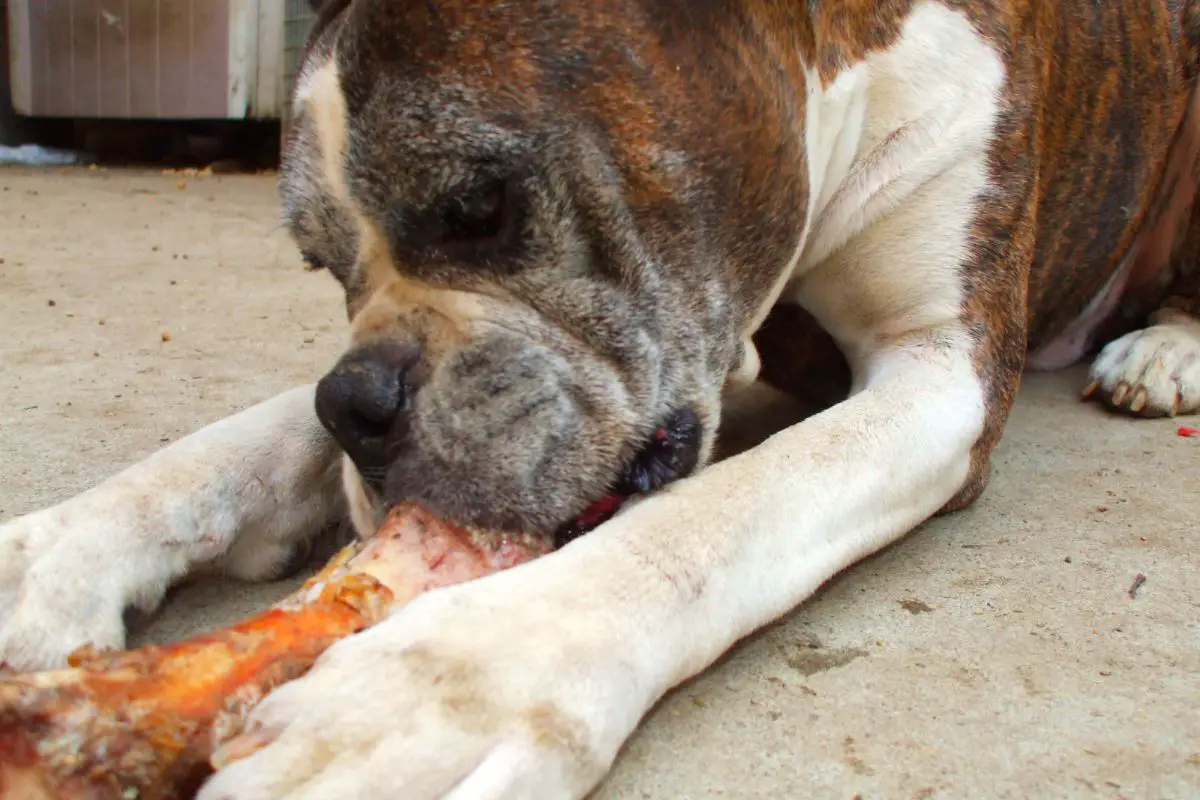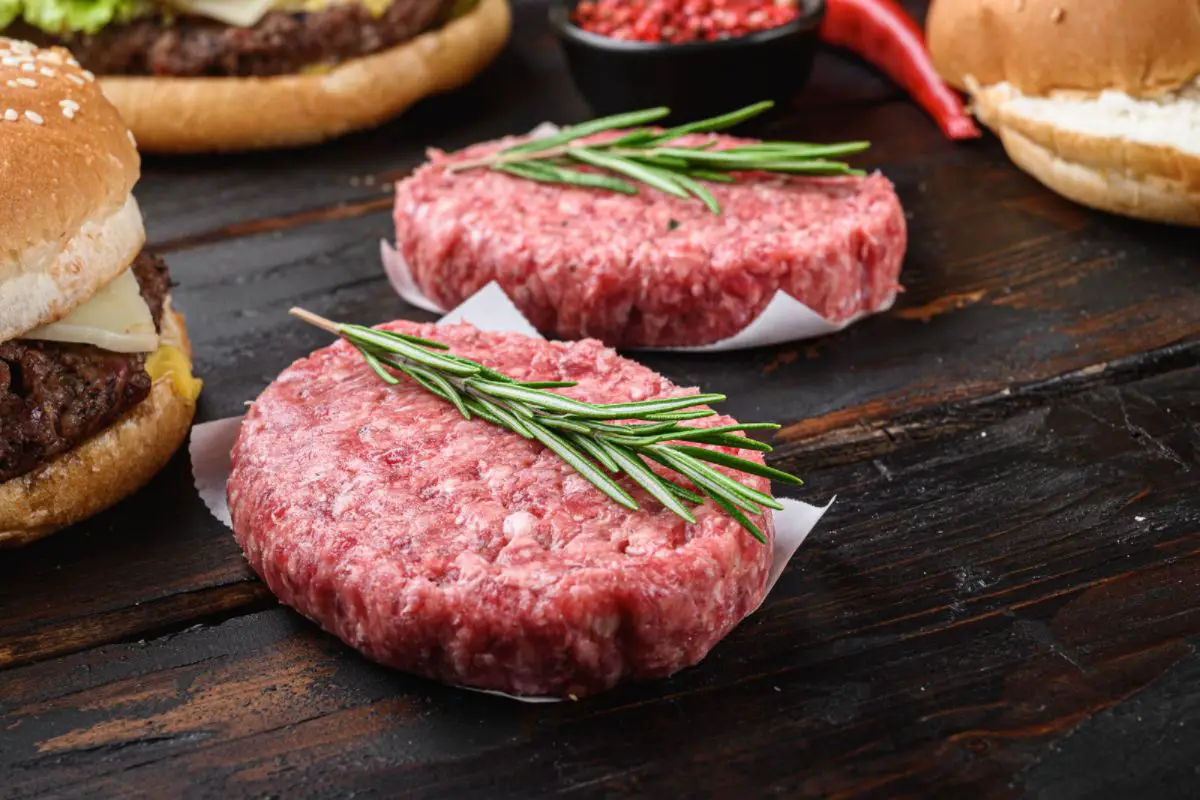This post contains affiliate links.
One of the joys of being a dog owner is getting to give your pet an occasional treat. If you’ve ever eaten a watermelon in front of a dog, they’ll most likely beg for a piece until you finish or give in. But can dogs eat watermelon, or is it poisonous to them, like so many other fruits?
Dogs can eat watermelon but avoid feeding them watermelon seeds. Watermelon is high in many vitamins that are great for dogs and has a high water content that dogs will find refreshing in the heat. If they eat too many seeds, however, they could get intestinal blockages
To set your mind at ease, read on to discover why you can feed your dog watermelon without hurting him. We’ll also go through some other fruits you can feed your dog, including those that you can’t.
Table of Contents
Is Watermelon Safe for Dogs?
Cautious pet owners avoid giving their dogs too much “people food” and know which foods they should avoid. For instance, every dog owner knows not to give their dog grapes and chocolate. So why is watermelon different?
The truth is, grapes are the exception, not the rule.
Watermelon is safe for dogs because no nutrient present in watermelon is toxic to them, making it completely safe for them to eat, as long as they avoid the seeds and rind. This is according to a 2016 study from the journal Frontiers in Veterinary Science.
Health Benefits of Watermelon
Not only is watermelon safe for dogs, but it also carries some vitamins and nutrients that can help your dog’s health! Here are some of the nutrients in watermelon that are good for dogs, according to the American Kennel Club:
- Lycopene: An antioxidant that’s also found in tomatoes, lycopene is thought to prevent cancer in dogs and humans.
- Potassium: This electrolyte is critical to dogs’ nervous systems.
- Vitamin A: Vitamin A keeps your dogs’ skin and fur full and healthy.
- Vitamin B6: This critical B vitamin supports many vital functions, including glucose generation and immune responses.
- Vitamin C: Vitamin C is an antioxidant that reduces inflammation as your dog ages.
Watermelons also have a high fiber content, which can make your dog’s bowel movements more regular. Additionally, they’re 92 percent water, which will help keep your furry friend cool in the summer months.
Are Watermelon Seeds Safe for Dogs?
Watermelon seeds aren’t safe for dogs. While swallowing a few shouldn’t be uncomfortable for them, they can suffer some serious digestive issues if they eat too many. Seeds won’t be dissolved in a dog’s stomach as well as in humans, and they might get diarrhea if they end up eating too much.
In a worst-case scenario, your dog could face intestinal blockage or a ruptured intestine. Smaller dogs, which have much tinier digestive systems, are more likely to be affected by this than big dogs.
Signs of intestinal blockages include tiredness, vomiting, constipation, and pain. If your dog seems to be experiencing constipation and is behaving in a way that expresses pain after eating watermelon, take them to the vet immediately.
To avoid giving your dog a dangerous amount of seeds, try cubing the watermelon and separating the pieces with seeds from the pieces without. Give your dog only the seedless cubes.
If you don’t want to spend time cubing the watermelon, you can also just buy a seedless watermelon. Seedless watermelon, as you might guess, has been cross-bred so that it has hardly any seeds. You can feed your dog a whole slice of seedless watermelon without worrying about him facing intestinal blockage.
Other Health Risks of Feeding Dogs Watermelon
While watermelon is perfectly safe for your dog to eat, seeds aren’t the only thing you need to watch out for when you feed it to your canine friend. Here are the other health risks your dog face when you feed them watermelon:
Feeding Your Dog Rinds Can Lead to Digestive Issues
Like the seeds, watermelon rinds won’t dissolve in a dog’s stomach, leading to the same digestive issues. To make sure your dog doesn’t swallow any watermelon rinds, don’t leave them alone with any slices that are attached to a rind.
You can give them cubed watermelon or feed them slices out of your hand. If your dog eats a rind, you’ll want to get them checked out at the vet.
Giving Your Dog Too Much Might Cause Digestive Discomfort
Responsible pet owners know that routine is critical to your dog’s health and that feeding them regular meals without too much excess will keep them healthy. That doesn’t mean you can never feed your pet treats like watermelon, but it does mean that you should be careful not to introduce too much of a good thing.
If your dog is used to eating dog food and dog treats, and then on a hot summer day, you decide to give them half a watermelon, their bodies may react with digestive issues like diarrhea. Fortunately, it won’t do your dog any lasting damage, but it could cause a messy accident.
To avoid causing your four-legged friend issues like this, limit yourself to giving them just a few pieces of watermelon at a time. They might pout and beg for more, but you’ll be saving them from discomfort later.
Too Much Sugar Can Cause Obesity and Diabetes
Dogs’ diets are supposed to be complex and made up of various meat, grains, fruits, and vegetables. Canines are at risk for some of the same issues that affect human beings, like obesity and diabetes, which come from consuming too much sugar.
Fruits, therefore, shouldn’t make up too much of a dog’s diet. Make sure to give your dog nutritious food like the Blue Buffalo Dry Dog Food from Amazon.com, which contains real meat and veggies, and only give them “extras” like a watermelon on occasion.
Other Fruits Dogs Can Eat
Just like people, dogs can have different tastes! Many dogs love to munch on watermelon, but some just don’t care for it. So what if you want to give your dog a treat, but they don’t like watermelon?
Fortunately, there are plenty of other fruits that are tasty and healthy for your dog to eat, according to the American Kennel Club. Here are just a few fruits that your dog can have a few bites of:
- Apples: Apples are high in fiber, vitamin A, and vitamin C. To avoid feeding your dog the seeds, cut the apple into slices before sharing it.
- Bananas: You probably know that bananas are an excellent source of potassium, but you’ll be happy to know that they’re also safe for your dog.
- Cranberries: Cranberries are great sources of vitamin C, but they tend to be very tart, so keep in mind your dog may not like them right away! Other kinds of berries, such as blueberries and strawberries, are also safe for dogs to eat.
- Oranges: Oranges have a strong taste, like cranberries, so whether your dog will like it depends on what they like. However, they’re full of vitamin C and are safe for dogs. But avoid giving them the orange rind.
- Pears: Pears are one of the healthiest fruits you can eat, with high levels of vitamin C, vitamin K, and copper. As with all the other fruit on this list, don’t give your dogs the seeds, but a sliced pear should be just fine.
Keeping some fruit around the house will be good for both you and your dog.
Fruits To Avoid Feeding Your Dogs
Watermelon is safe for dogs to eat, and so are all the fruits listed above. However, there are several fruits that’ll cause serious health issues to your dog if they somehow get a piece of them. Make sure to avoid giving the following types of fruit to your dog:
- Avocados: Avocados contain persin, a chemical that has proved to be mildly poisonous to dogs and can lead to vomiting and diarrhea.
- Cherries: Cherries can give dogs cyanide poisoning, leading to a lack of oxygen in their blood.
- Grapes: Grapes are extremely toxic to dogs, though the reasons for this are unclear. Raisins fall into this category as well. Feeding your dog grapes can lead to acute sudden kidney failure.
Final Thoughts
Watermelon is a healthy treat for both you and your dog. Full of water, fiber, and vitamins, this fruit is refreshing on a warm summer day and will make your dog’s tail wag like crazy. Make sure not to feed them the seeds or the rind since both can cause serious digestive issues.
Fruit and other kinds of “people food” should be given to your dog sparingly. Focus on making sure they get full meals every day that are full of the protein they need. But don’t be afraid to give your dog a chomp of watermelon!
Related Articles
- Can Dogs Eat Black Eyed Peas (Is It Safe?)
- Can Dogs Eat Edamame? (We Find Out!)
- My Dog Ate a Pine Cone: Here’s What To Do About It
- Can Dogs Eat Sage? (Is It Safe)
- Can Dogs Eat Thyme? (We Find Out)
Sources
- NCBI: Household Food Items Toxic to Dogs and Cats
- American Kennel Club: 7 Vitamins Your Dog Needs for a Healthy Life
- Wikipedia: Diabetes
- American Kennel Club: Fruits and Vegetables Dogs Can or Can’t Eat
- American Kennel Club: Can Dogs Eat Watermelon?
Mrdogfood.com is a participant in the Amazon Services LLC Associates Program, an affiliate advertising program designed to provide a means for sites to earn advertising fees by advertising and linking to Amazon.com. We also participate in other affiliate programs which compensate us for referring traffic.





